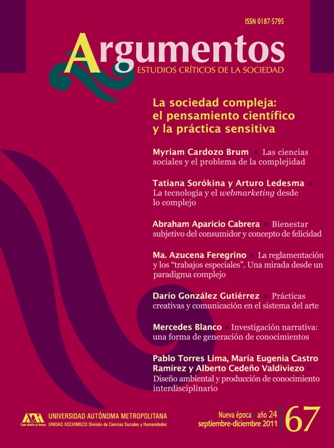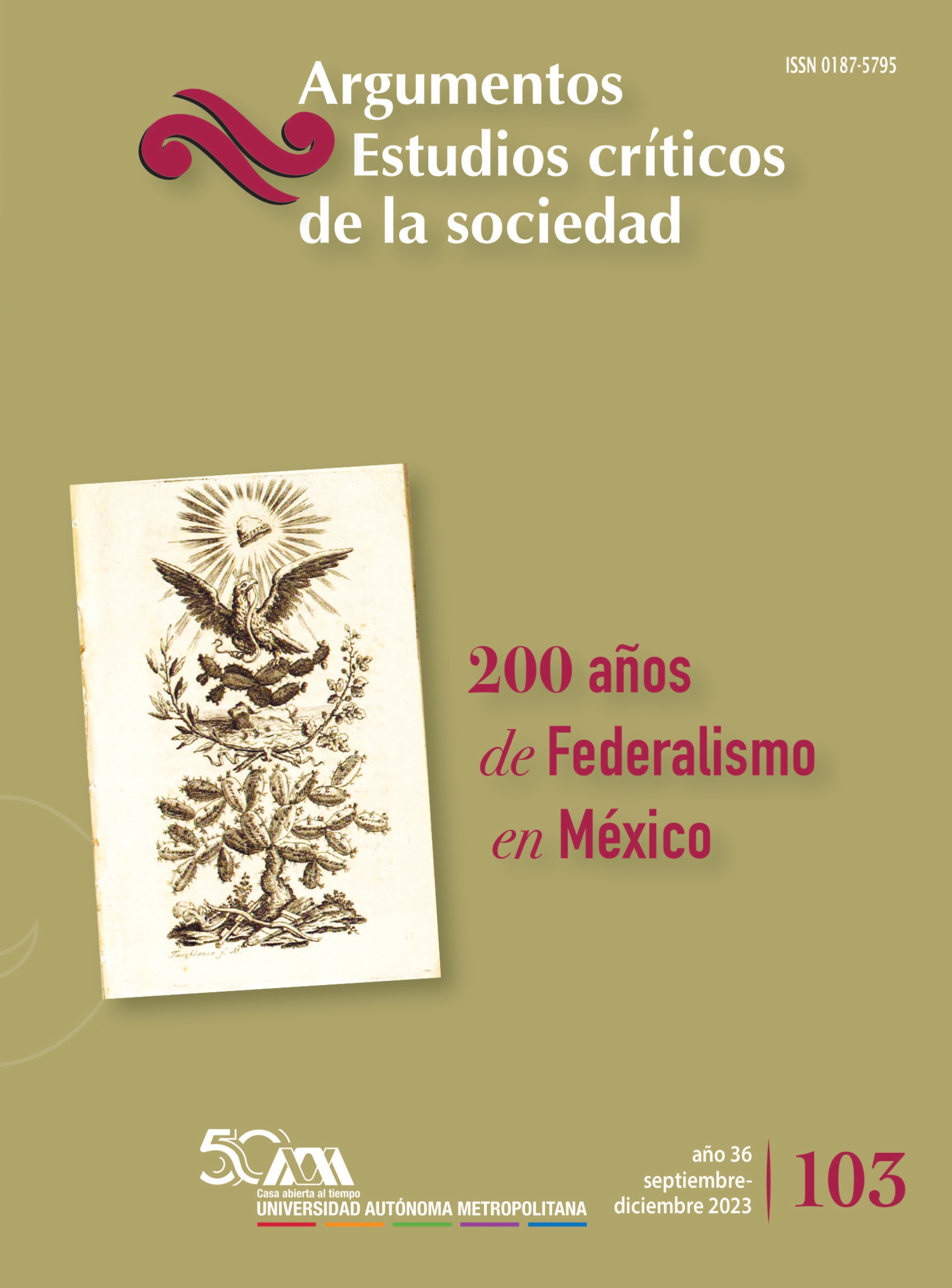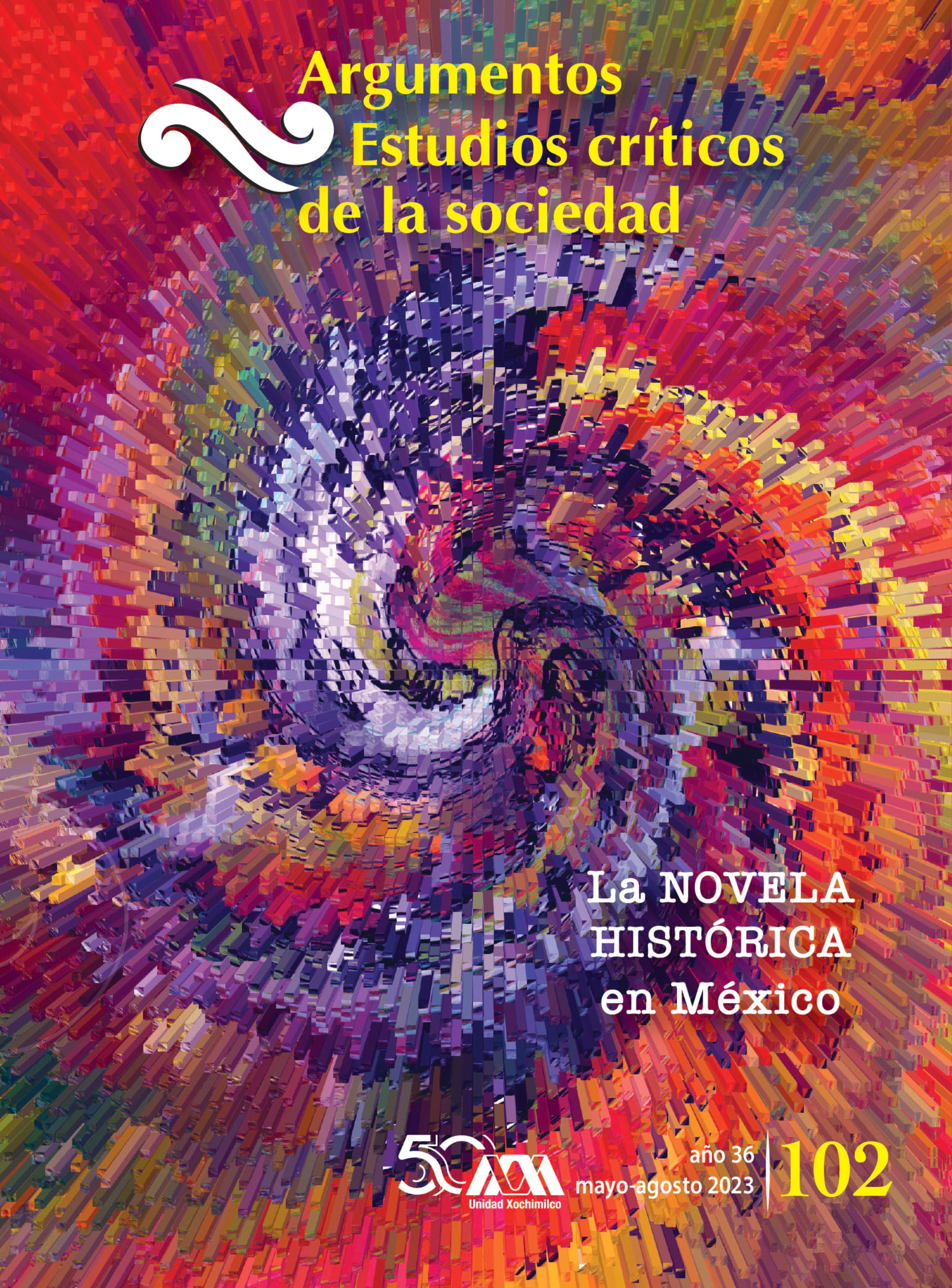Bienestar subjetivo del consumidor
y concepto de felicidad
Keywords:
consumption, aspirations, happiness, ethics, subjective well-beingAbstract
This theorist paper looks at the importance of private consumption expenditure growth in the achievement of individual happiness and life satisfaction. In the first section it summarizes the main empirical results of panel studies and correlation using country level data; in the second section it reviews different conceptions about happiness; the third section deal with consumers´ aspirations in order to obtain happiness, and in the fourth section it proposes a theoretical model, based on personal happiness-conceptual-referent, in order to explain why the increase in consumption may have an ambiguous or not significant influence on subjective well-being, taking into account both the resources and the aspirations of consumer. The paper ends pointing out some guidelines for a future empirical research.
References
Aparicio, Abraham, “Consumo y desarrollo humano integral: elementos para una hipótesis de trabajo”, Tercera Semana sobre crecimiento, comercio y desarrollo económico: teoría y evidencia, Escuela Superior de Economía del Instituto Politécnico Nacional, Ciudad de México, 2 de septiembre de 2010.
——, “Felicidad y aspiraciones crecientes de consumo en la sociedad posmoderna”, Revista Mexicana de Sociología, vol. 71, núm. 1, 2009, UNAM, México, pp. 131-157.
Argandoña, Antonio, “La ética de la sociedad de consumo”, Cuadernos Empresa y Humanismo, núm. 37, s/f.
Argyle, Michael, La psicología de la felicidad, Alianza Editorial, Madrid, 1987.
Borgmann, Albert, “The moral complexion of consumption”, Journal of Consumer Research, núm. 26, marzo, 2000, pp. 418-422.
Bruni, Luigino y Luca Stanca, “Income aspirations, television and happiness: evidence forma the World Values Survey”, Kyklos, vol. 59, núm. 2, 2006, pp. 209-255.
Campbell, A., P. Converse y W. Rodgers, The quality of american life, Russell Sage Foundation, Nueva York, 1976.
Cortina, Adela, Por una ética del consumo, Taurus, Madrid, 2002
Crawford, Emily; Ed Diener, Derrick Wirtz, Richard Lucas y Shigehiro Oishi, “Wanting, having, and satisfaction: examining the role of desire discrepancies in satisfaction with income”, Journal of Personality and Social Psychology, vol. 83, núm. 3, 2002, pp. 725-734.
Crocker, David y Toby Linden (eds.), Ethics of consumption. The good life, justice and global stewardship, Rowman & Littlefield Publishers, Nueva York, Oxford, 1998.
Cuadra, H. y R. Florenzano, “El bienestar subjetivo: hacia una psicología positiva”, Revista de Psicología, vol. 22, núm. 1, 2003, pp. 83-96.
Díaz, Guillermo, “El bienestar subjetivo: actualidad y perspectivas”, Revista Cubana de Medicina General Integral, vol. 17, núm. 6, 2001, pp. 572-579.
Dichter, E. “Level of aspirations”, en Raymond Corsini y Alan Auerbach (eds.), Concise encyclopedia of psychology, segunda edición, John Wiley and Sons, 1996, Estados Unidos, p. 524.
Diener, Ed y F. Fujita, “Resources, personal striving, and subjective well-being: a nomothetic and idiographic approach”, Journal of Personality and Social Psychology, vol. 68, núm. 5, 1995, pp. 926-935.
Diener, Ed; Eunkook Suh, Richard Lucas y Heidi Smith, “Subjective well-being: three decades of progress”, Psychological Bulletin, vol. 125, núm. 2, 1999, pp. 276–302.
Dorsch, Friedrich, Diccionario de psicología, Herder, Barcelona, 1976.
Easterlin, Richard, “Income and happiness: towards and unified theory”, Economic Journal, vol. 11, 2001, pp. 465-484.
——, “Will raising the incomes of all increase the happiness of all”, Journal of Economic Behavior and Organization, vol. 27, 1995, pp. 35-48.
Elliott, Richard, “Existential consumption and irrational desire”, European Journal of Marketing, vol. 31, núm. 3, 1997, pp. 285-296.
Fernández-Abascal, E., María Dolores Martín y Javier Domínguez, Procesos psicológicos, Pirámide, Madrid, 2001.
Ferrater, José, Diccionario de Filosofía, 2 vols., Alianza Editorial, Madrid, 1990.
Frank, Robert, Luxury fever: money and happiness in an era of excess, Free Press, Nueva , 1999.
Frey, Bruno y Alois Stutzer, Happiness and economics: how economy and institutions affect well-being, Princeton University Press, Princeton, Oxford, 2002.
Fullerton, Sam; Kathleen Kerch y Robert Dodge, “Consumer ethics, an assessment of individual behavior in the market place”, Journal of Business Ethics, vol. 15, 1996, pp. 805-814.
Galindo, Miguel Ángel, “Ética del consumo y del crecimiento”, Ética y empresa, núm. 823, junio, ICE, Madrid, 2005.
Gordon, Scott, Historia y filosofía de las ciencias sociales, Ariel, Barcelona, 1995.
Hall, Robert y John B. Taylor, Macroeconomics: theory, performance and policy, WW Norton & Company, Nueva York, 1991.
Headey, Bruce, “Life goals matter to happiness: a revision of set-point theory”, Social Indicators Research, vol. 86, 2008, pp. 213-231.
Hirschberger, Johannes, Historia de la filosofía, vol. 1, Herder, Barcelona, 1997.
Hirschman, Albert, Interés privado y acción pública, Fondo de Cultura Económica, México, 1986.
Inglehart, Ronald, “Modernization, postmodernization and changing perceptions of risk”, International Review of Sociology, vol. 7, 1997, pp. 449-459.
Jay, Michael; Pedro Quellas, Jorge Pinto y Nicola Higgskleyn, “Consumer ethics in the European Union. A comparison of the northern and southern views”, Journal of Business Ethics, vol. 31, 2001, pp. 117-130.
Kahneman, Daniel, “Mapas de racionalidad limitada: psicología para una economía conductual”, Revista Asturiana de Economía, núm. 28, 2003, pp. 181-225.
Karlsson, N., P. Dellgran, B. Klingander y T. Gärlin, “Household consumption: influences of aspiration level, social comparison, and money management”, Journal of Economic Psychology, vol. 25, núm. 6, 2004, pp. 753-769.
Knobloch, Ulrike, Theorie und Ethic des Konsums. Reflexionen auf die normativen Grundlagen socialökonomischer Konsumtheorie, Haupt, Berna, 1994.
Lane, Robert, The loss of happiness in market democracies, Yale University Press, New Haven and London, 2000.
Lane, Robert, The market experience, Cambridge University Press, New York, 1991.
Layard, Richard, La felicidad. Lecciones de una nueva ciencia, Taurus, México, 2005.
Lipovetsky, Gilles, La sociedad de la decepción. Entrevista con Bertrand Richard, Anagrama, Barcelona, 2008.
Lu, Lou; Robin Gilmore y Shu-Fang Kao, “Cultural values and happiness: an east-west dialogue”, Journal of Social Psychology, vol. 141, núm. 4, 2001, pp. 477-493.
Lu, Luo y Jian B. Shih, “Source of happiness: a quantitative approach”, Journal of Social Psychology, vol. 137, núm. 2, 1997, pp. 181-187.
MacDonald, Maurice y Robin Douthitt, “Consumption theories and consumers’ assessments of subjective well-being”, Journal of Consumers Affairs, vol. 26, 1992, pp. 243-266.
Martínez, Emilio, “Por una ética del consumo responsable”, conferencia pronunciada en la Asamblea General de Facuaconsumur, Murcia, 12 de marzo de 2005.
McMahon, Darrin, Una historia de la felicidad, Taurus, Madrid, 2006.
McReynolds, P., “Hedonism, psychological”, en Benjamin Wolman (ed.), International encyclopedia of psychiatry, psychology, psychoanalysis and neurology, New York Aesculapius Publisher, Inc., 1977.
Muncy, J. y Scott Vitell, “Consumer ethics, an investigation of the ethical beliefs of the final consumer”, Journal of Business Research, vol. 24, 1992, pp. 297-311.
Norman, R., “Felicidad”, en Ted Honderich (ed.), Enciclopedia Oxford de Filosofía, Tecnos, Madrid, 2001.
Oropesa, R.S., “Consumer possessions, consumer passions, and subjective well-being”, Sociological Forum, vol. 10, 1995, pp. 215-244.
Ozawa, T. y Patrick Hoffstetter, “Use of Longitudinal Panel Data to Estimate the Effects of Adopting New Activities to Household Consumption Patterns and Happiness”, Proceedings, International Workshop on Driving Forces of and Barriers to Sustainable Consumption, University of Leeds, Reino Unido, 2004, pp. 88–97.
Praag, B. van y P. Frijters, “The measurement of welfare and well-being: the Leyden approach”, en Kahneman et al. (comps.), Well-being: the foundations of hedonic psychology, Rusell Sage Foundation, Nueva York, 1999.
Programa de las Naciones Unidas para el Desarrollo (PNUD), Informe sobre el desarrollo humano, Ediciones Mundi-Prensa, Madrid, 1998.
Programa de las Naciones Unidas para el Medio Ambiente (PNUMA), “Editorial”, Tunza, vol. 2, núm. 3, 2004, p. 3.
Rojas, Mariano, “A conceptual-referent theory of happiness: heterogeneity and its consequences”, Social Indicators Research, vol. 74, 2005, pp. 261-294.
——, “Economía de la felicidad. Hallazgos relevantes respecto al ingreso y al bienestar”, El Trimestre Económico, año 76, vol. 3, núm. 303, 2009, pp. 537-573.
——, “Heterogeneity in the relationship between income and happiness: a conceptual-referent-theory explanation”, Journal of Economic Psychology, vol. 28, núm. 1, 2007, pp. 1-14.
Schopenhauer, Arthur, El arte de ser feliz. Explicado en cincuenta reglas para la vida, Herder, España, 2000.
——, El mundo como voluntad y representación, Círculo de Lectores/Fondo de Cultura Económica, Barcelona/Madrid, 2005.
Scitovsky, Tibor, Frustraciones de la riqueza. La satisfacción humana y la insatisfacción del consumidor, Fondo de Cultura Económica, México, 1986.
Séneca, Lucio, “De la tranquilidad de ánimo”, en Tratados morales, UNAM, México, 1991.
——, Cartas a Lucilio, Juventud, Barcelona, 2000.
Senik, Claudia, “Is Man Doomed to Progress”, Discussion Paper, núm. 2237, IZA, 2006.
Torres, Juan, “Teorías del consumidor frente a ética del consumo”, Temas para el Debate, vol. 76, 2001, pp. 22-25.
Vitell, Scott, “Consumer ethics research. Review, synthesis and suggestions for the future”, International Conference on Business Ethics in the Knowledge, 2002.
Weiner, Bernard, “Level of aspirations”, en Antony Manstead y Miles Hewstones (eds.), The Blackwell Encyclopedia of Socialpsychology, Blackwell Publishers Ltd., Estados Unidos, 1999.
Weiss, A.; Timothy Bates y Michelle Luciano, “Happiness is a personal(ity) thing: the genetics of personality and well-being in a representative sample”, Psychological Science, vol. 19, núm. 3, 2008, pp. 205-210.








